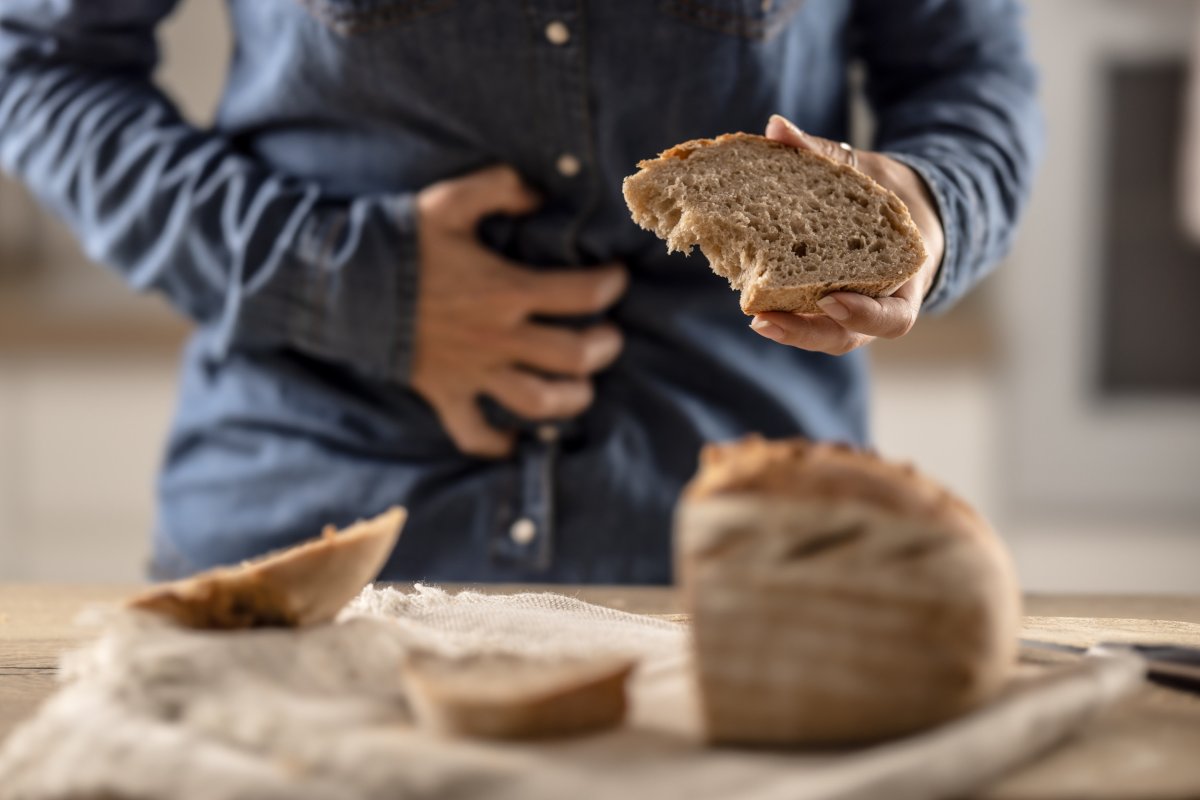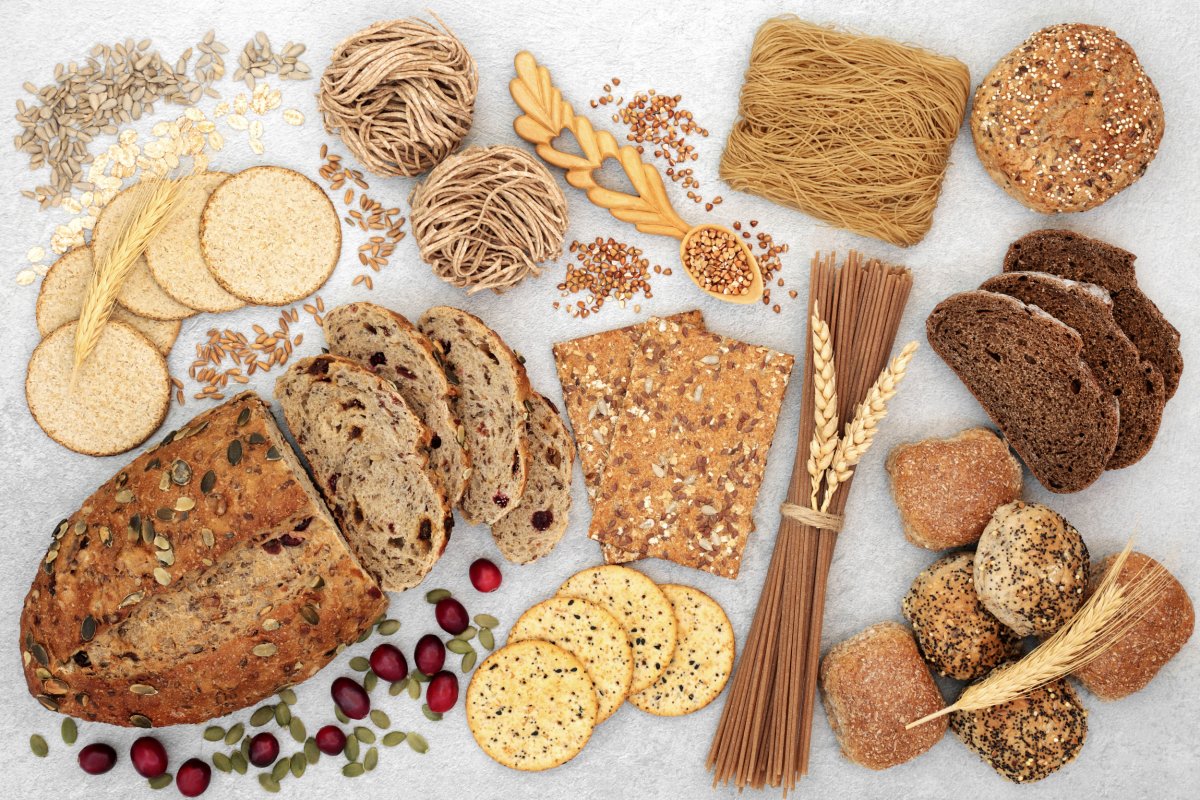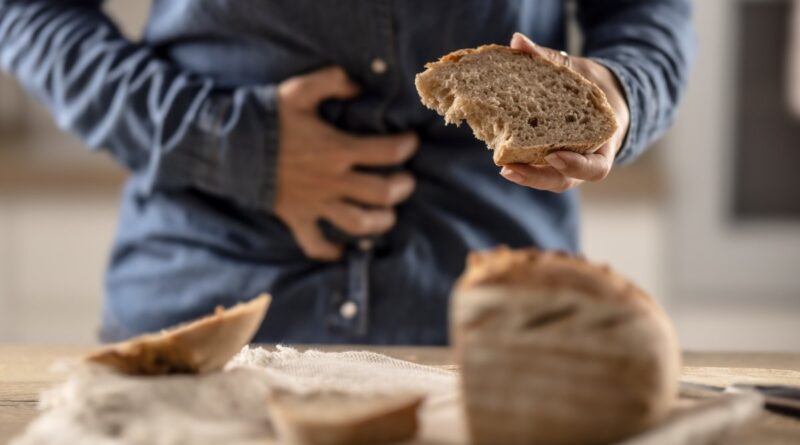Should we give up gluten? Here’s what nutritionists have to say
In the early 2000s, it used to be a TV cliché for an actor to announce that they were eating a gluten-free diet—an indication that they had been cleared of gluten-free diets. eat trendy food.
But now, about 20 percent of Americans say they’ve tried a gluten-free diet, according to the University of Nebraska—and it’s still unclear whether gluten has a net positive for the diet. ours, or suitable for waste disposal.
Newsweek I got the opinions of five nutritionists to try to shed some light on gluten: the protein found in grains, including wheat, barley and rye, and all foods made from wheat, including bread, pasta, cookies, cakes and pastries.
Dietitian and nutritionist Kimberly Gomer seemed to be the most against gluten Newsweek: “It’s not an essential nutrient, so as a nutritionist, I wouldn’t consider it healthy,” and, “The body can only benefit from removing it.”
On the other side of the spectrum, nutritionist Clemmie Oliver, from the Nutrition and Lifestyle Medicine Clinic, said: “Grains are an important part of our diet and extensive research shows that eating more is associated with a lower risk of type 2 diabetes, heart disease, other cancers and all-cause mortality.”
All experts agree that, for the approximately 1 percent of people worldwide who have celiac disease, gluten should always be avoided.
“People with celiac disease need to avoid gluten-containing foods completely because they have an autoimmune disease where gluten is the driver of the immune response,” said the gastroenterologist. Dr. Debra Silberg, chief scientific officer of Beyond Celiac.
“The immune response affects the whole body and people with celiac disease can have [gut] issues such as malnutrition, diarrhoea, flatulence due to inflammatory bowel disease.
“Celiac disease can also lead to fatigue, depression, anxiety, brain fog and other neurologic issues.”
In the United States, another 6 percent of the population is gluten intolerant, according to data from the Cleveland Clinic. These people may also benefit from giving up gluten, experts said.
“Those with non-celiac gluten sensitivity may experience symptoms such as inflammation, fatigue and joint pain when consuming gluten, even though they do not have celiac disease,” said Hamilton.
“For these people, removing gluten from their diet can lead to significant symptom relief.”

Marian Vejcik/Getty Images
Joffe says some people may not realize they have an intolerance or sensitivity to gluten, so they may benefit from exploring gluten-free foods.
“Anyone with any negative, undiagnosed symptoms such as bloating or brain fog may benefit from eliminating gluten from the diet completely for a month before slowly introducing gluten-containing foods. – slow to check intolerance,” he said.
For those who don’t have celiac disease, or an intolerance or sensitivity to gluten, some experts still have doubts about eating large amounts of gluten-containing foods.
Hamilton said that gluten can “lead to digestive problems and contribute to conditions like leaky gut” – where the lining of the gut becomes porous, allowing substances to pass into the bloodstream – for some people, it is recommended to eat gluten “in moderation” and pay. attention to any negative symptoms.
“For many, gluten can be a healthy part of their diet, providing important nutrients and fiber…[but] excessive use can still cause unpleasant symptoms such as inflammation,” he said.
For Joffe, eating or avoiding gluten was not the most important question for these people.
“The gluten in question is the most important,” he said. “A wholegrain product, made from 100 percent wheat, would be less, and much less, gluten-free than a highly processed, sugar-laden food.
“Pastry may cause a problem for those who can tolerate gluten normally, not so much because of the gluten, but because of the processing of that gluten and additional additives. It is always better to choose whole foods or done as little as possible.”
Joffe also cautions against looking at gluten-free foods as immediate health alternatives to gluten-containing varieties.
“There’s a common misconception that gluten-free means healthy,” she said. “This is wrong, and in fact sometimes a product containing gluten is not effective and healthy for those who are gluten intolerant.”
Silberg agreed, adding: “Unfortunately, to make gluten-free foods taste better, some contain a lot of sugar, stabilizers and other chemicals.
“It’s important to read labels and try to buy gluten-free foods with fewer additives.”
But for Gomer, one of the benefits of eating a gluten-free diet is the chance to get rid of processed carbohydrates.
He said this is especially true for the 11.6 percent of Americans who have type 2 diabetes, and the 38 percent of adults in the United States who have prediabetes—according to the Centers for Disease Control and Prevention. and Disease Prevention-those whose bodies struggle to deal effectively with the sugars and carbohydrates in their diet.
“Diabetes, those with diabetes and insulin resistance, as well as anyone trying to lose weight, can benefit from eliminating gluten from their diet,” he said. Gomer. Insulin resistance is a precursor to prediabetes; insulin is a hormone that deals with glucose.
“Many people have insulin resistance, and by giving up gluten, they give up a lot of carbohydrates that include gluten, such as cakes, cookies, bread, crackers, as well as many processed foods,” he said so.
“This lays the foundation for eating a diet full of protein, healthy fats, vegetables and tolerable carbohydrates that don’t include gluten.”

Marilyn/Getty Images
But some groups may benefit from avoiding gluten-containing foods, according to nutritionists.
Oliver specializes in people with gastrointestinal problems, including irritable bowel syndrome (IBD) and irritable bowel syndrome (IBS).
He said there is some evidence that people with IBS may see improvement in symptoms on a gluten-free diet, but this may not work for everyone with the condition.
“Research has shown that it may not be the removal of gluten that improves symptoms, but rather following a [gluten-free diet]”The patient will be reducing their intake of fermentable carbohydrates called fructans,” said Oliver.
This may have a similar effect to the low-FODMAP diet, he explained, which is often recommended as a treatment for IBS.
For people with IBD, on the other hand, Oliver said “there was no need to avoid gluten” unless they were also diagnosed with IBS due to ongoing gastrointestinal symptoms.
Meanwhile, Hamilton said that a gluten-free diet could help people with autoimmune conditions — his specialty.
“Emerging research suggests a link between gluten and autoimmune conditions, such as Hashimoto’s thyroiditis, rheumatoid arthritis and psoriasis,” he said. “In these cases, gluten can exacerbate inflammation and immune responses.
“I have seen many of my clients change their lives by removing gluten from their diet when this is a contributing factor to their condition, and other studies have shown that many people with autoimmune disorders report improved symptoms and reduced inflammation after adopting a gluten-free diet.
“While not everyone with an autoimmune condition needs to eliminate gluten, those who understand it can find many benefits.”
Overall, the group’s conclusion seemed to be that some people might benefit from cutting out gluten, others might not, and those who didn’t know for sure were I tried eating a gluten-free diet regularly to see if it made a difference in how they felt.
Do you have advice about the food story that Newsweek should cover? Do you have a nutritional problem? Let us know about science@newsweek.com. We can ask experts for advice, and your story can be featured Newsweek.
#give #gluten #Heres #nutritionists
